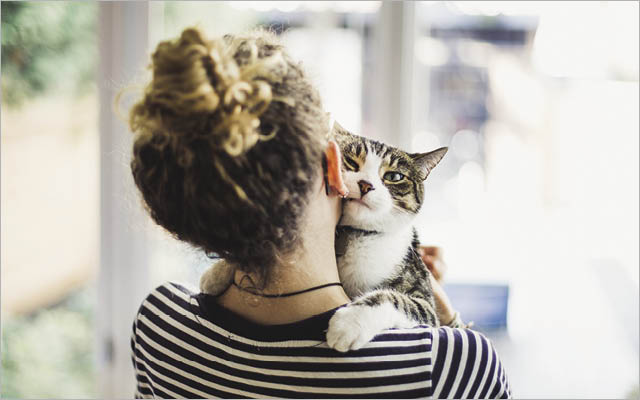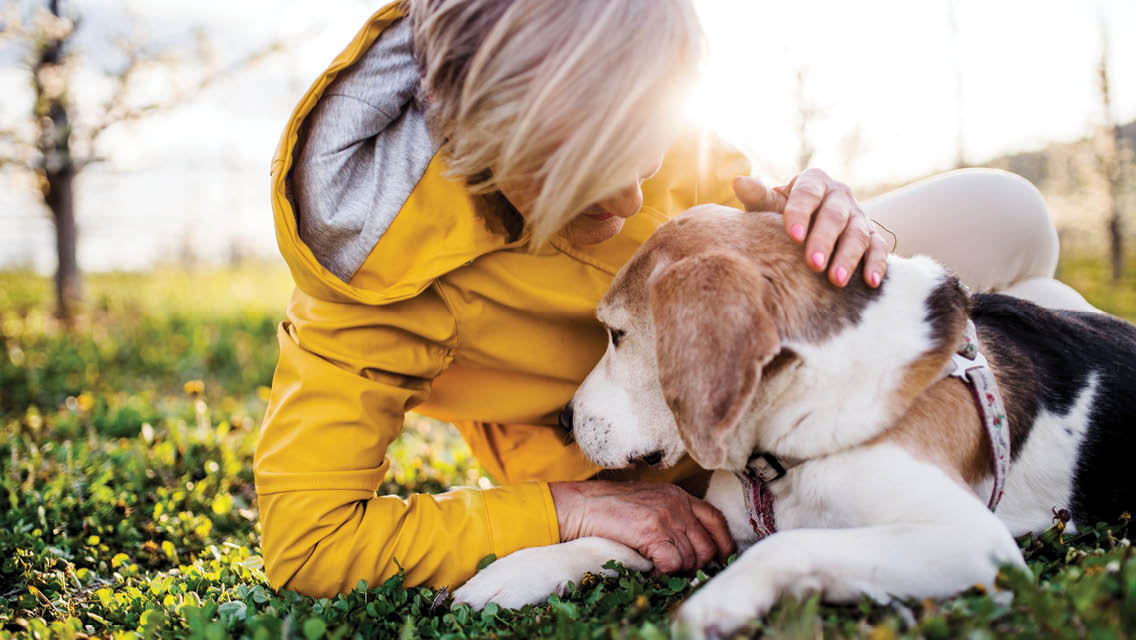Pets are beloved members of the family. They share affection with no strings attached, entertain us, and provide us with daily opportunities to show love and care. Since pets are supportive during tough emotional times, we may feel their absence especially acutely when we have to endure their loss without them.
“Many people simply don’t realize how attached they were to a pet,” says psychiatry professor Sandra Barker, PhD, an authority on human–animal relationships. “They think they’ll get over the loss quickly and easily but find themselves struggling with the surprising duration and intensity of their feelings.”
Most or all of the stages of grief — denial, anger, bargaining, depression, and acceptance — outlined by Elisabeth Kübler-Ross in her groundbreaking book On Death and Dying may be present after the death of a beloved pet. “These are now considered phases rather than stages of grief,” Barker explains, “because they can happen in any order and be repeated.”
We may feel guilt, for example, if we think we should have noticed our dog’s illness earlier or forbidden our cat to go outside. Given our pets’ dependence upon us, it’s natural to feel there must have been more we could have done to care for them. “But animals can’t often communicate with us in ways that would help us understand what is wrong with them and the best action to take,” she says.
“It’s important to take the long view of yourself as a pet owner,” Barker adds. “If you’re like most, you probably were responsible, dedicated, and compassionate during the life of your pet. There was only so much you could have known, and you probably did the best you could with that knowledge.”
Consider these suggestions for working through the phases of grief that come with losing a beloved pet:
- Embrace the depth of the bond. Pets aren’t human beings, but our bond with them is a real and deep part of being human, says Barker. For example, you’re not a “crazy cat lady” simply because you are profoundly saddened by the loss of your cat.
- Get support. While many people today understand the depth of the bond between pets and owners, the connection still seems mysterious or trivial to some. Seek support from people who understand what you are going through.
- Honor your pet in your own way. “In commemorating a pet that has died or disappeared, the most important thing is doing what brings you comfort,” she says. “If you would rather put away all mementos of the pet for a while and hold a small ceremony a few weeks later, do that. If keeping a single memento, like a collar or a brush, helps you grieve, do that.”
- Don’t rush to replace the pet. “Wait until you are ready to form a new relationship and try to find one who will occupy a different place in your heart,” Barker recommends.
This originally appeared as “I recently lost my beloved pet and the grief is overwhelming. What are some ways I can work through my emotions?” in the June 2019 print issue of Experience Life.




This Post Has 0 Comments